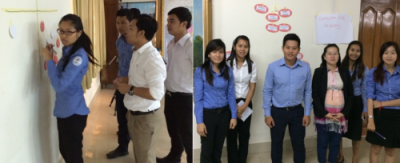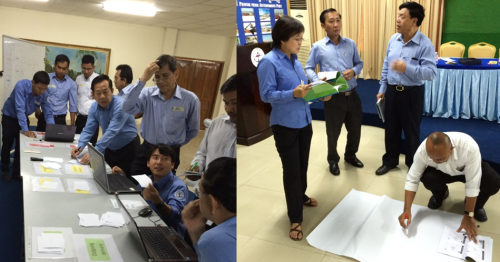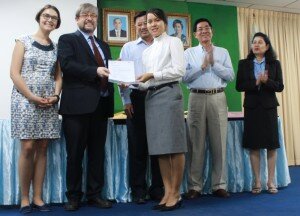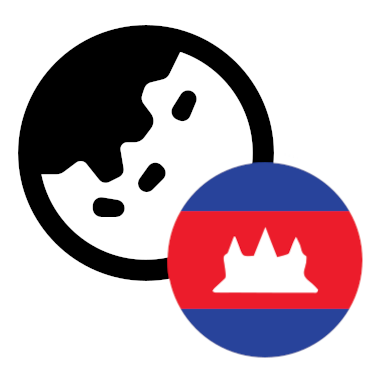02 March 2015
Improving logistic performance in hinterland is considered to be the main factor for ports efficiency and fostering regional integration. Therefore, the German Ministry for Economic Cooperation and Development (BMZ) supports regional integration through the “Regional Economic Cooperation and Integration in Asia” Programme. In the light of the ongoing programme phase the Deutsche Gesellschaft für International Zusammenarbeit (GIZ) GmbH has commissioned the Institute for Shipping Economics and Logistics (ISL) to develop training curricula for the Phnom Penh Autonomous Port (Kingdom of Cambodia) and implement trainings to support maritime chains and clusters in the Pan-Beibu Gulf Region. This training project started in September 2014 with a pre-assessment of training needs and an initial training and continued in January 2015 with one week-long training conducted in Phnom Penh.
In January 19-23, 2015, the second training under the topic “Support for Maritime Chains and Clusters in the Pan-Beibu Gulf Region” was conducted. During the week, the two lecturers – Prof Dr. Hans Dietrich Haasis and Dr. Irina Dovbischuk worked simultaneously with two groups. Each group consisting of about 20-25 participants.

Dr. Irina Dovbischuk (t.h.l) and Prof. Dr. Hans-Dietrich Haasis (t.h.r.) give an overview on cluster development and port marketing for group “Cloud” and “Mobility”
Each topic encompassed both an integrative lecture and intensive feedback-based learning in smaller groups. Following topics were presented based on the previously assessed curricula:
- Logistics, supply chain management (SCM) and transport corridors
- Sustainable port management
- Communication culture and integrative IT-management of ports
- Cluster formation and port cooperation, and
- Seaport marketing.

Group work on port sustainability concept
During interactive group work, participants learned about SCM processes through simulations and case study exercises. Topics developed with diverse groups containing representatives from different departments of Phnom Penh Autonomous Port were among others sustainable seaport development and port cooperation.

Teams in a simulation of supply chain
The feedback session concluded the training and certified the participant’s content with the programme. Both sides expressed the wishes to cooperate in the future.

Personalized certificate overhanded by Prof. Dr. Hans Dietrich Haasis to participant

